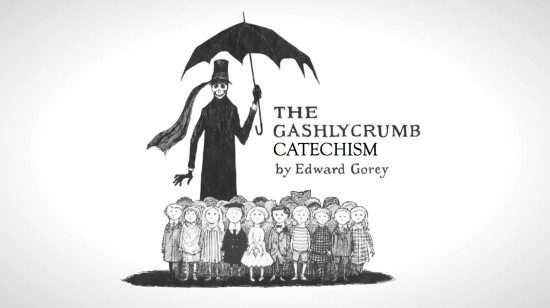"Good pitching will beat good hitting any time, and vice versa."
— Bob Veale
Some interesting discussion recently in comments about human nature, specifically around the perennial question: Are people basically good?
That's a perennial question, but perhaps not a very helpful one.
The answer we Christians give is "Yes." And also "No."
The Yes part has to do, in part, with the "imago Dei" — the image of God. Each and every person, we believe, is created in the image of God. This spark of the divine is a permanent and essential component of our humanity and can never be wholly extinguished. (It also has to do with our place as the objects of God's love — meaning that if you want to argue that people aren't worth a damn, you'll have to take that argument up with God.)
Yet our fallen state is also essential. This Christian belief is conveyed in two doctrines that, unfortunately, bear rather misleading names: "original sin" and "total depravity." The idea of original sin is that sin is actually anything but original. And total depravity sounds more like a description of the mutants in "Resident Evil" than like most humans. A more accurate name might be something like "totally pervasive depravity" — the idea being not that we are wholly corrupt, but that every part of us, every aspect, is in some way less than whole (this is especially important in contrast to dualistic philosophies that view our souls as holy and our bodies as evil — such as Augustine's never-quite-shed neo-Platonism, which led him to twist original sin into something having to do with sex, a literally perverse idea that continues to screw up a lot of Christian thinking about sex and sin and human nature).
But you needn't agree with any of that to appreciate the wisdom of Reinhold Niebuhr's chastened, humble, "change the things I can" approach to human nature, politics and international relations.
Bracket for the moment any idea of sin, any question as to whether or not there is something inherently wicked in human nature, and consider only the better angels of our nature.
We're still human — which is to say we're finite and fallible. We're smallish and parochial. We don't live very long. We don't and can't know everything. Our perspective is always limited by our inability to be in more than one place at a time, one time at a time. And even when we have all the knowledge we can get — on those rare occasions when we're able even to know that we have all the knowledge we can get — and our intentions are as pure as can be, we still tend, quite often, to botch things up through simple, nonmalicious, human error.
All of which recommends Niebuhr's cautious, prudent approach.
I had dinner once with a botanist who specialized in remedying the damage caused by exotic invasive species. Many of these species had been imported deliberately, with the best of intentions, only to find that certain variables had not been accounted for, certain consequences had not been foreseen, leading to disastrous results.
The botanist was coping with a particularly pernicious invasive species, the melaluca trees choking out native species in the Florida Everglades. Something had to be done and the botanist had a plan. He wanted to import a voracious species of beetle and unleash it in the Everglades. This benevolent invader, he was certain, would feed only on the melalucas, dying away after it had cleansed the area of its exotic food supply and thus having no further long-term effect on the native ecosystem.
I wished him the best and I hope that those overseeing this effort really have accounted for every possible variable and foreseen every possible consequence, as he assured me they had. But I maintain a Niebuhrian skepticism about the project.
Niebuhr's modest view of human nature led him to favor limited government. He did not believe that human virtue was ever sufficient as a check to power, so he insisted that power also be limited by power, by checks and balances.*
But even if you have a more optimistic assessment of human virtue than that offered by Niebuhr's neo-Orthodoxy you can perhaps agree that our limited, human knowledge and wisdom also suggest the need for limits on the power of government as well as a chastened view of the prospects for revolution.
All of this — his insistence on limited government, his suspicion of revolution, his extreme caution in international relations, his "realist" rejection of pacifism — might make Niebuhr sound like an utter conservative, "a reactionary humbug … who does not wish to endanger the status quo."
But Niebuhr's desire to "accept the things I cannot change" is only part of his prayer, only part of his theology. He also insists that having the courage to change the things we can is an imperative, a duty. For Niebuhr, progress is a necessity, an obligation, even something of an inevitability.
Look again at that famous prayer:
God grant me the serenity to accept the things I cannot change; courage to change the things I can; and wisdom to know the difference.
Niebuhr's hopes for progress were modest, but he was certainly no defender of the status quo.
For the theological consideration of human nature, I think Reinhold Niebuhr is unparalleled. Yet I remain, overall, less pessimistic and more hopeful than he was about the prospects for progress. This is not because I disagree with his perspective on human nature, but because I disagree with his perspective regarding the other half of what theologians study — the nature of God. Or, as one of his former students put it:
[Niebuhr's] pessimism concerning human nature was not balanced by an optimism concerning divine nature.
That former student was Martin Luther King Jr., whose "optimism concerning divine nature" was not an abstraction. He put it to the test in the only laboratory theologians have.
(More of King on Niebuhr from A People So Bold!)
– – – – – – – – – – –
* Because Scott will inevitably chime in here, a note on libertarianism. Like all forms of utopianism, Niebuhr rejected this as incompatible with human nature. He would have appreciated the instinctive aversion to tyranny, but he wasn't naive enough to suggest that tyranny could be avoided without the exercise of power — meaning organized, institutional power and not merely some ad hoc Red Dawn fantasy that thinks the Second Amendment is the only necessary and sufficient measure for the prevention of tyranny. Thus Niebuhr defended the wisdom of America's Madisonian form of divided, limited government. Democracy lets the people keep the state in check, but even so the state tends to be more powerful than the people, so the power of the state must also be balanced against itself. Here we see the bitter tragedy of libertarianism — its "anti-government" ideology succeeds mainly in weakening the checks and balances meant to keep government in its place. See, for example, George W. Bush.
















